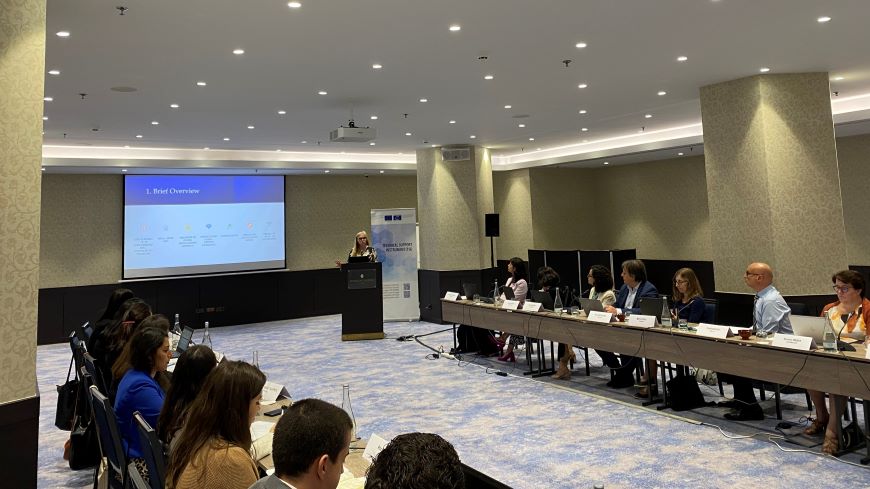On 29-30 June 2023, the Council of Europe’s Economic Crime and Cooperation Division (ECCD), in cooperation with the European Commission Directorate General for Structural Reform Support (DG REFORM) and Banco de Portugal (BdP), held a two-day multi-country Workshop on “Implementing Anti-Money Laundering and Countering Financing of Terrorism (AML/CFT) risk-based supervision of virtual assets service providers: good practices and lessons learnt”, in Lisbon, Portugal.
The event brought together 30 representatives from seven EU Member states, as well as representatives of the European Commission and the Council of Europe, and it was organised as a part of the Council of Europe efforts aimed at supporting Banco de Portugal with enhancing the AML/CFT supervision of the Virtual Assets (VAs) and Virtual Assets Service Providers (VASPs) sector, including through the implementation of a sectoral risk assessment. In this regard, the workshop allowed Banco de Portugal representatives to exchange experience with six supervisory authorities from other EU Member States on establishing a strong registration and/or licensing regime and supervision framework for VASPs.
The workshop was kicked-off by a presentation as regards the current status of VAs’ and VASPs’ regulation and supervision in Portugal. BdP representatives have for instance provided an overview of the existing legal framework, numbers of registered VASPs, as well as the ongoing and planned supervisory activities. As a follow-up, the Council of Europe expert presented on specificities of setting up a robust framework for risk-based AML/CFT supervision of VASPs and provided a summary of an analysis conducted by the Council of Europe in 2022/2023, which looked into good practices and challenges in EU Member States as regards effective VASPs’ market entry mechanisms and supervision. The presentation has most notably highlighted some of the common challenges encountered by supervisors within and outside the EU, together with some potential solutions and good practices to be considered by the authorities.
The first part of the workshop was followed by several insightful presentations provided by practitioners from Bulgaria, Estonia, Lithuania, Luxembourg, Malta and Poland, who shared important inputs as regards their practical experience of establishing effective market entry and supervisory mechanisms for VASPs, including encountered challenges and lessons learnt in the process. Representatives of supervisory authorities further engaged in fruitful discussions regarding observed trends of strengthening the market entry and supervisory framework for VASPs in the EU Member States, which as one of the results has a migration of VASPs whose licences were revoked in some EU Member States to other EU Member States where they consider applying for licence or to register. In order to facilitate exchange of information between the competent authorities in the process of assessing applications submitted by VASPs and aiming to ensure more comprehensive set of available information on particular VASPs, the present representatives have agreed with compiling a list of relevant points of contact where competent authorities can inquire about reasons for revoking a licence for particular VASP in another EU Member State. The project will undertake an outreach to the EU Member States’ supervisory and licencing authorities for VASPs who did not participate in this workshop and invite them to take part in this initiative, aiming to further enhance the cross-border exchange of information among the AML/CFT competent authorities.
The event was organised within the framework of the Technical Support Instrument (TSI) initiative on “Developing a risk-based methodology for an automatic anti-money laundering/counter terrorist financing risk categorisation for supervised entities in Portugal”, funded by the European Union and the Council of Europe, and implemented by the Council of Europe.



